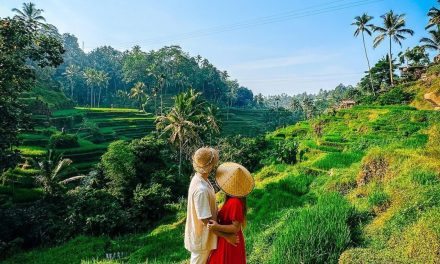Imagine yourself in the heart of Bali, surrounded by lush rice paddies and the intoxicating scent of frangipani in the air. You’ve spent your days exploring ancient temples and lounging on stunning beaches. But as evening approaches, a different kind of adventure awaits: Balinese cooking classes for tourists. This experience is not just about food; it’s an immersion into Balinese culture, and it has the power to transform your entire trip!
Why Take a Balinese Cooking Class?
When I first stepped into a Balinese cooking class, I was a bit skeptical. I had taken a few cooking classes in my hometown and wasn’t sure how much I would learn on this island paradise. But just a couple of hours in, I quickly realized that this was going to be an unforgettable experience. Not only did I learn about traditional recipes, but I also gained insights into the rich culture and communal nature of Balinese dining.
A Personal Anecdote
During my first class, the local chef, named Wayan, welcomed us into his home with a warm smile and a cup of the island’s famous coffee. As we gathered around his kitchen, he shared stories about his childhood growing up in a Balinese village. He reminisced about how his mother would always involve him in the cooking process, a tradition he proudly carries on through his classes.
His passion for cooking was infectious. By the end of our session, we weren’t just tourists learning to make a dish; we were participants in a centuries-old culinary tradition.
What to Expect in a Class
Hands-On Cooking Experience
Most classes begin with a trip to the local market. I vividly remember visiting the bustling Ubud Market, where Wayan introduced us to fresh ingredients — lemongrass, galangal, and vibrant spices. Selecting the ingredients felt like a ritual, connecting us to the land and community.
Once back in the kitchen, the hands-on experience kicked off. We crafted dishes like Nasi Campur (mixed rice) and Sate Lilit (minced meat satay). Each dish is accompanied by stories and tips passed down through generations. The best part? Freedom to experiment! I remember pouring in a bit extra coconut milk into my dish and receiving a thumbs-up from Wayan.
Cultural Lessons
These classes go beyond just cooking; they offer a glimpse into how food plays a central role in Balinese culture. Did you know that food is often used in rituals and offerings? Wayan walked us through some of the spiritual significance of balinese cuisine and even how to make an offering of foods. This added depth to the flavors we were creating — it was like we were weaving our own stories into the meal.
Finding the Right Cooking Class
With so many options available, how do you choose a class? Here are some practical tips:
1. Research the Instructor: Look for classes taught by local chefs who can share their personal stories and culinary history.
2. Check Reviews: Platforms like TripAdvisor or Airbnb Experiences are great for honest reviews from other travelers.
3. Small Groups: Aim for classes with fewer participants for a more intimate experience. You’ll find that you can ask questions and absorb more.
4. Hands-On Cooking: Make sure the class encourages you to participate actively in the cooking process. After all, it’s about learning!
Unique Insights
In Bali, food isn’t just about sustenance; it’s an expression of love and community. One evening, while enjoying the meal we had prepared together in class, we shared stories with fellow travelers. Each bite of the fragrant dishes felt even more special, as we connected over how food can bring people together, regardless of where you come from.
I’ll never forget one traveler sharing her experience of cooking with her grandmother back home; her eyes sparkled as she compared the smells and flavors. That’s the magic of cooking classes in Bali — it bridges cultures and creates memories.
Relatable Scenarios
Picture this: You’ve just enjoyed a beautiful day in Bali, but instead of heading to a restaurant for dinner, why not join a cooking class? It’s a fantastic way to unwind and channel your creative energy while learning something new. Plus, it often ends with a communal meal that feels like a celebration!
Imagine if you stumbled upon a stunning ocean view while walking to your class, which happens often in Bali. It’s the little surprises that can make a class feel even more special — just like the unexpected burst of flavor from a perfectly made sambal.
Conclusion
If you’re a tourist in Bali seeking something authentic and memorable, I wholeheartedly recommend taking a Balinese cooking class. Beyond the skills you acquire, it’s the stories, connections, and flavors that will linger in your heart long after you’ve returned home. You’ll leave not just with a full stomach, but with a deeper understanding of Balinese culture and possibly, a new favorite recipe to share with family and friends.So when you’re in Bali, don’t just be a tourist – immerse yourself in the vibrant flavors and rich traditions of this beautiful island. Your taste buds will thank you!






